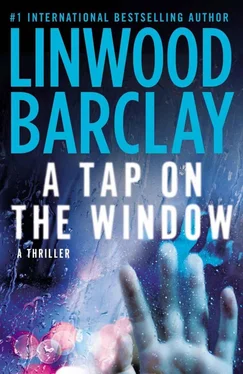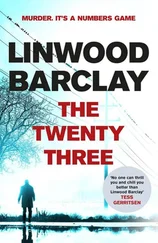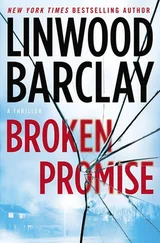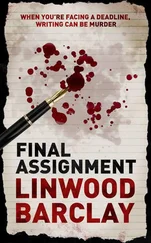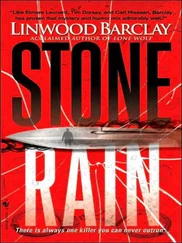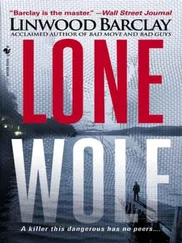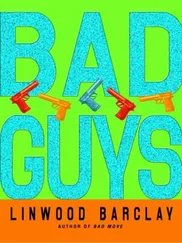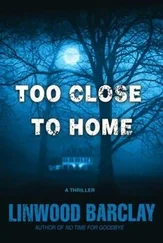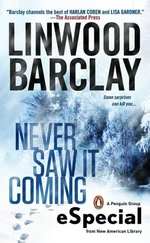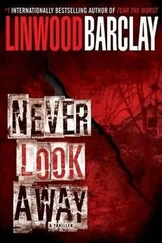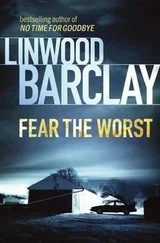I had a sense that Kent, and his wife, Annette, who ran the store with him, had taken something of an interest in our son possibly because their own boy, Roman, didn’t want any part of the family business. He was twenty-one and, from what I’d heard, aspired to greater things than running a furniture store; he spent his time hanging out at home, tapping away at zombie screenplays on his laptop, which had, so far, failed to attract any attention from Spielberg or Lucas or Scorsese.
Donna and I had hoped the responsibilities associated with a summer job would have a maturing effect on Scott. Instead, it just meant he had more money to spend on booze and drugs, which he’d consumed in considerable quantities that night on the roof.
The police investigation, such as it was, concluded that Scott, possibly with friends, had been up on that roof more than once. They found a number of discarded liquor bottles, marijuana butts, and a couple of dropped ecstasy tabs.
What fun it must have seemed, having the roof to himself, a view of Griffon below, and in the southern distance, Niagara Falls, the Skylon Tower on the Canadian side looking like some enormous golf tee on the horizon.
I had been up there myself, twice, since Scott’s death. Both times, as a father, but I couldn’t help but take in the scene as an investigator. Trying to figure out how it happened, re-creating the events in my head. I could picture him larking about, letting the combination of drugs and alcohol carry him away. A brick ledge, a kind of lip, ran along the roof’s perimeter, but it was only about six inches high. Not a barrier that would break a person’s fall if he tripped near the edge, and certainly not a barrier that would present any obstacle to someone who thought he had the ability to fly. I’m usually okay with heights, but the two times I’d been up there, standing right up next to that brick lip, I could feel the vertigo kicking in. Was I really dizzy, or was I imagining Scott’s delirium at the time?
And I remembered vividly that knock on the door. Donna and I’d been in bed, but neither of us asleep, wondering where Scott was. I’d tried his cell without success, and was just about to get dressed and go looking for him when there was a hard rap on the front door.
“Oh God,” Donna’d said. “Oh no.”
I don’t put a lot of faith in premonitions or a sixth sense. But right then, when that knock came, I think we both knew we were about to get very bad news.
I’d run down to the door in my robe, Donna trailing after me. When I opened it, we saw a Griffon police officer standing there, a name tag on his shirt that read. When he saw Donna, I could see surprise in his eyes.
“Ms. Weaver,” he’d said. “I had a feeling, when I checked his wallet, it might be the same Weaver.”
“Ricky?” Donna’d said. “Why are you here? What’s happened?”
“It’s about your boy.”
We’d both held our breath. Officer Ricky Haines took off his hat and held it over his chest, obscuring his name tag. “I’m awful sorry, but I have some bad news.”
Donna clutched my arm. “No,” she’d said. “No, no, no.”
I’d pulled her into my arms as Officer Haines said—
“Hey, Cal. Cal? Cal? ”
I was so wrapped up in my own thoughts of the past I hadn’t noticed a person standing to my left in the present. It was Annette Ravelson. She was late forties, round but not quite plump, what they might have called zaftig in another time. She stood about five eight, but would have been five five without the heels. Gold hoop earrings the size of coasters dangled below her poufy gray-blond hair, and there was a powerful whiff of some flowery fragrance about her.
“Hi, Annette.”
We’d known the Ravelsons even before Scott went to work for them. We’d bought furniture here over the years, then got to know them better during the summer Scott worked there. But our encounters since the incident had been few.
“You okay?” she asked.
“Yeah, I’m fine.”
“I kept saying your name, but you didn’t seem to hear me.”
“I’m sorry.”
“What happened to you?” She pointed to my temple, which had puffed out slightly.
“Took a tumble,” I said. “No big deal.”
“You sure?”
“Positive. I’m fine.”
Annette stopped looking at my head and sized up my vantage point. She had to know what had been going through my head.
“Is this a good idea, Cal?” she asked hesitantly. “I mean, coming by here all the time, standing here—”
“You’re right,” I said quickly. “Absolutely right. I should get going, anyway. I was just walking over to town hall.”
“Oh,” she said. Worry crossed her face. “Council meeting tonight?”
“So I gather.”
“Cal, please, tell me you’re not going to ask them for a new law mandating higher railings on the edges of buildings or something like that. That’s what people do these days. They think some new ordinance will prevent another tragedy like—”
“No, I’m not doing that.”
Now Annette Ravelson looked mortified. “I’m sorry. I should never have said that. That was awful of me. Forgive me.”
I waved it away. “Nice to see you, Annette.”
She touched my arm as I began to leave. “Cal, there’s also something — this is very awkward, especially after I’ve just been so horrible.”
“What is it?”
“Believe me, this isn’t me talking. But Kent, well, he’s seen you standing out here quite a few times before, and I wouldn’t want you to think he doesn’t understand what you’ve been through. Believe me, his heart goes out to you, as does mine. You know that. But when he sees you here, sometimes sitting in your car in the parking lot there, well, it kind of creeps him out, if you know what I mean.”
“Creeps him out.”
“That came out wrong. But it makes him uncomfortable. I mean, other customers, they see you there, and they ask why you’re there, and—”
“I certainly wouldn’t want to make Kent uncomfortable,” I said. I looked at the building. “Is he in? Maybe he’d like to tell me himself.”
Annette Ravelson put a hand up to my chest, nearly touching it. “He’s not there. I’m sorry. I shouldn’t have mentioned it.”
Now I felt sorry, too. That I had overreacted. “No, it’s okay. I understand. Give Kent my regards. I haven’t seen him around in a while.”
“Everyone’s busy, you know,” she said.
“Anyway, I need to go,” I said. I forced a grin. “I’ll say hi to the mayor for you.”
A startled expression overtook her face. “Why would you do that?” she asked.
“It’s a joke, Annette,” I said. “Take care.”
Getting into Griffon Town Hall wasn’t like entering the Capitol, or the White House, or even the Empire State Building. For a while there, after 9/11, the mayor at the time implemented harsh security measures, and he had the support of Augustus Perry, who was deputy police chief then. You couldn’t get into the building without passing through a metal detector and having your bag inspected. But being that Griffon was a small town, it wasn’t long before the security people, who were also locals, started getting walked all over.
“For Christ’s sake, you gonna strip-search me before I can go in there and buy a fucking tag for my dog, Mittens?” Rose Tyler, a fixture around town, allegedly snapped one day. They let her keep her bag and bypass the metal detector. It got to be that way with most everyone within two or three months. It was decided that if al-Qaeda decided to attack America again, Griffon Town Hall was not likely among their top ten targets, so reason prevailed and the security measures were dropped.
Читать дальше
